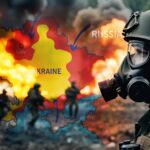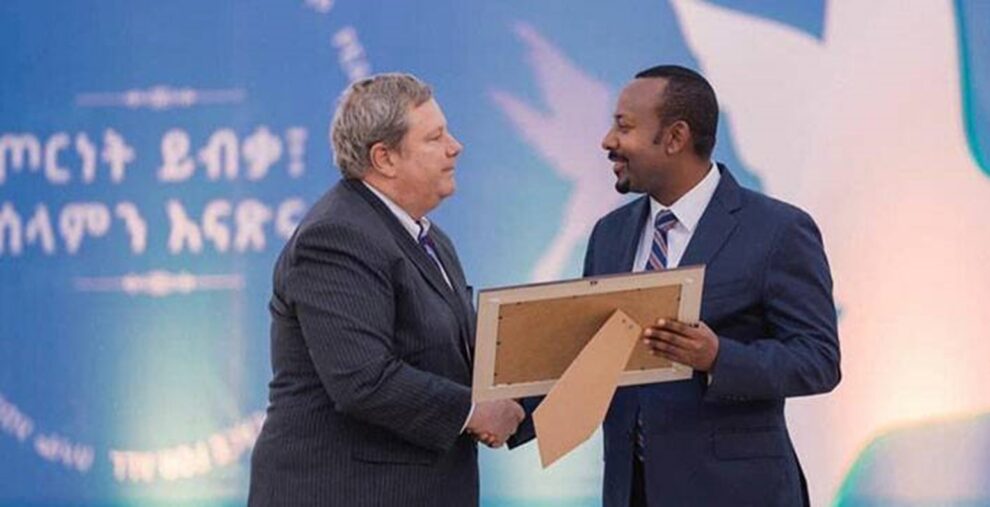Ethiopians and Sudanese witnessed the removal of nearly three decades-old dictators almost at the same time. After protests swept both countries, Ethiopia shifted from the Ethiopian Peoples’ Revolutionary Democratic Front (EPRDF), a coalition of four parties, in April 2018; and in April 2019, Sudanese bid farewell to Omar al-Bashir. However, the neighboring nations of the Horn of Africa have been on divergent paths. Sudan has seen the West ease its sanctions, while Ethiopia has lost some privileges as a result of sanctions to pressure the Ethiopian government to end the conflict in northern Ethiopia peacefully.
Just as Ethiopia is closing the book on war and instability, Sudan has descended into it, with generals on opposing sides of the same coin fighting to hold power.
In recent years, Ethiopia has been a hotbed of domestic conflict, which nearly spilled over into the Horn of Africa region. The international community, donors, international financial institutions, and investors shunned the country, leaving the Ethiopian government with few options to close budget gaps. Ethiopia’s growth rate declined by more than two percent as a result.
Ethiopia has also lost one of its strengths and its image as a stabilizer in the horn when the northern war broke out two years ago.
Since the nations of the Horn of Africa are typically embroiled in conflict and domestic issues, the region continues to serve as a battleground for both local and global interests. In order to stabilize the Horn, the region requires at least one stable and neutral nation at all times. Somalia is engaged in combating al-Shabab. Eritrea has been isolated from mainstream politics and diplomacy, whereas Djibouti is a superpower military base. Kenya has a relatively stronger diplomatic position with the West and the ability to broker the peace agenda.
However, six months after signing the Pretoria peace accord to end hostilities, Ethiopia is already reaping the benefits of peace, paving the way for it to resume its former role as a regional stabilizer. The decision by the Ethiopian government to resolve all political differences peacefully has also inspired optimism.
Last weekend’s announcement by Prime Minister Abiy Ahmed (PhD) of negotiations with the Oromo Liberation Front (OLF-shene) prompted the international community to regain confidence in Ethiopia. This week, representatives of the Ethiopian government and the OLF-shene began peace negotiations in Zanzibar, Tanzania—the first meeting since the two sides signed a peace accord in August 2018 in Asmara, Eritrea. But there has been nonstop conflict in several regions of the Oromia regional state for the past five years as the agreement has failed to hold.
The announcement of peace talks in Tanzania brought relief both domestically and internationally.
Concerned that the Horn of Africa region may devolve completely into war, the international community is already encouraging Ethiopia to maintain peace.
Many deem it prudent for Ethiopia to negotiate with the OLF-shene. They contend that the Sudanese conflict can provide fertile ground for all armed groups. But the Ethiopian government, which had vowed to fight the armed group to the bitter end, eventually yielded to pressure from foreign powers and agreed to enter into talks as they did with the Tigray People’s Liberation Front (TPLF). Norway, the United States (US), Sweden, and Kenya have exerted pressure on the Ethiopian government to negotiate with OLF-shene.
The US has begun to normalize relations with Ethiopia. The International Monetary Fund (IMF) also hinted that a new program for Ethiopia is in the works. Even the European Union, which remained on the fence even after the Pretoria agreement was signed, decided to reconcile with the Ethiopian government in the end.
Just one day after Abiy’s announcement of the planned negotiations, the European Union Council issued a statement welcoming efforts to bring about tangible peace. “The EU welcomes further efforts to swiftly bring tangible peace dividends to all affected populations,” the bloc said in a statement.
In addition, the EU strongly encourages “international financial institutions to assist the GoE in addressing the country’s critical economic situation through its economic reform agenda and creditor countries to work toward a swift conclusion of the debt restructuring process through the Common Framework.”
During a ceremony held last week in Addis Ababa to thank all the parties and stakeholders who contributed to the Pretoria agreement, many applauded Ethiopia’s return to its rightful position.
“This is the happiest moment for Ethiopia. We have stopped fighting each other,” Abiy said during the recognition ceremony on April 23, 2023, at Friendship Square, Addis Ababa.
“I wish such a day would come for the beloved people of Sudan. General al-Burhan and Hemedti can learn from Ethiopia, stop the unnecessary fighting in Sudan, and resolve their issues peacefully. It is better to negotiate for 20 years than fight for two years.”
Leaders of the African Union (AU), the Intergovernmental Authority for Development (IGAD), the US, the United Nations (UN), Kenya, South Africa, and China, among others, were lauded for their contributions to achieving peace in Ethiopia.
As much as the international community criticized the war in northern Ethiopia, it acknowledged that Ethiopia had finally come to its senses, viewing it as a stepping stone for Ethiopia towards the consolidation of the peace dividend.
“Ethiopia has no problem becoming the stabilizing force in the Horn of Africa. Basically, the problem in Ethiopia is caused by disagreement among the elite. There is no civil war in Ethiopia. The different ethnic groups in the country have no problem living together. The elite can agree anytime,” says Costantinos Berhutesfa (PhD), former UN Policy Advisor and Chair of the AU Anti-Corruption Board.
According to him, Ethiopia’s internal problems can be resolved overnight if the elite are determined to find a solution. “Respecting ethnic diversity is the minimum requirement of human rights. But all the ethnic groups are living in one country.”
He asserts that internal stability is essential for becoming a regional stabilizer and retaining assertive power on the international stage. However, he contends that the Ethiopian government must still gain leverage.
“EPRDF managed to persuade the US that Ethiopia is fighting the US’s war in Somalia. Then Ethiopia became the regional stabilizer. Ethiopia has the biggest peacekeeping force in Africa and the second-largest in the world. Now, Ethiopia must be able to maintain that momentum,” Constantinos says.
For him, the question now is whether the UN and AU have faith in Ethiopia’s ability to deploy peacekeeping forces. “If so, the UN and AU can recruit Ethiopian forces to deploy in peacekeeping missions in different countries,” Constantinos added.
Regarding the situation in Sudan, however, he emphasizes that the UN Security Council can decide to deploy a peacekeeping mission as the war between the two generals is likely to continue and could lead to the absence of a centralized government in Sudan.
“The war in Ethiopia is the outcome of a division within the same party. Two forces split out of the EPRDF failed to agree and fought each other. But in the case of Sudan, it is two rival military forces that are fighting for power and dominance. Both of them do not want to transfer power to civilians because they fear they would be held accountable for the crimes they committed in the past,” he added.
Some analysts assert that the West is rushing to normalize relations with Ethiopia out of concern for the conflict in Sudan’s potential repercussions.
Others, however, believe that the Ethiopian government is making every effort to fully implement the Pretoria agreement in order to normalize its relations with the West and avoid repercussions.
“The government is worried that if the UN pursues accountability for the northern Ethiopia war, it will bear severe consequences. It would be very difficult if the UNSC concluded that genocide was committed during the northern Ethiopian war. It will be very difficult for the Ethiopian officials,” said a peace and security expert who spoke to The Reporter on the condition of anonymity. “There can also be sanctions. Therefore, the Ethiopian government is doing everything the West orders to reconcile with armed groups.”
With the government’s priorities now refocused on economic development and reconstruction, experts agree that Ethiopia will soon begin to reap the benefits of peace.
Source: thereporterethiopia











